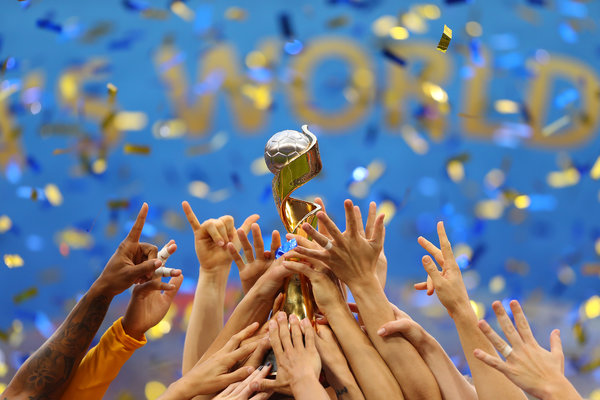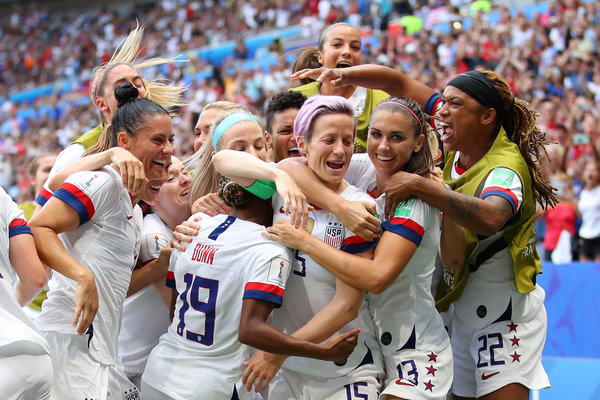‘ARROGANT.’ ‘RUTHLESS.’ AND UNAPOLOGETICALLY THEMSELVES
Maya Salam

“I feel this team is in the midst of changing the world around us as we live.” — Megan Rapinoe, the United States’ star attacker and the World Cup’s top scorer
When the athletes of the United States women’s soccer team celebrated their 13 unanswered goals against Thailand in the first round, they were called “arrogant.”
When they tore past France in the quarterfinals, they were called “ruthless.”
And when President Trump, responding to a months-old clip of Megan Rapinoe using an expletive to say she wouldn’t visit the White House if the team won the World Cup, told her to win “before she talks,” she and her teammates continued talking.
As the historian Laurel Thatcher Ulrich famously said, “Well-behaved women seldom make history.” On Sunday, the American women’s team did just that — securing a record fourth World Cup championship to maintain its reputation as the world’s greatest women’s soccer team (and one of the world’s greatest sports teams, period).
In the process, the Americans did more than shine as symbols of athleticism and teamwork; they affirmed themselves as fighters for equality on multiple fronts.
Here are three ways the team has elevated issues of fairness.

The fight for pay equity
After the American women sealed their victory in Lyon, France, chants of “Equal pay! Equal pay!” began to grow inside the stadium.
The American team will be awarded $4 million for its win, while the winners of the men’s World Cup last year received $38 million. Gianni Infantino, president of FIFA, soccer’s governing body, said the organization would double the total women’s prize for the 2023 tournament — but it’s also expected to raise the men’s award in 2022.
In 2015, the United States Soccer Federation awarded the women’s team $2 million for winning the World Cup. In 2014, the men’s team earned $9 million even though it did not advance past the first rounds.
Not surprisingly, the women’s national team is not taking that disparity lying down.
In March, all the players filed a gender discrimination lawsuit against U.S. Soccer, accusing it of years of “institutionalized gender discrimination.” They also noted that the argument that the men’s team generates more money simply isn’t true.
According to the suit, the federation had expected a combined net loss for the national teams of $429,929 from the 2016 fiscal year, but largely because of the successes of the women’s team’s, it revised its projections to a $17.7 million profit.
Defying the sportsmanship double standard
As the United States team rampaged against Thailand in its first World Cup match last month, the players leapt and celebrated nearly every goal. Clare Rustad, a former player for the Canadian national team, called the celebrations “disgraceful.”
Last week, striker Alex Morgan pretended to sip from a teacup after scoring against England in the semifinal. Lianne Sanderson, her former National Women’s Soccer League teammate, said the celebration was “distasteful.”
“I feel that there is some sort of double standard for females in sports,” Morgan said. “We have to be humble in our successes and have to celebrate, but not too much or in a limited fashion.”
“You see men celebrating all over the world in big tournaments,” grabbing their crotches and that sort of thing, she said.
And Rapinoe, when asked about the team’s celebrations said: “What do you want us to do? We work hard. We like to play hard.”



